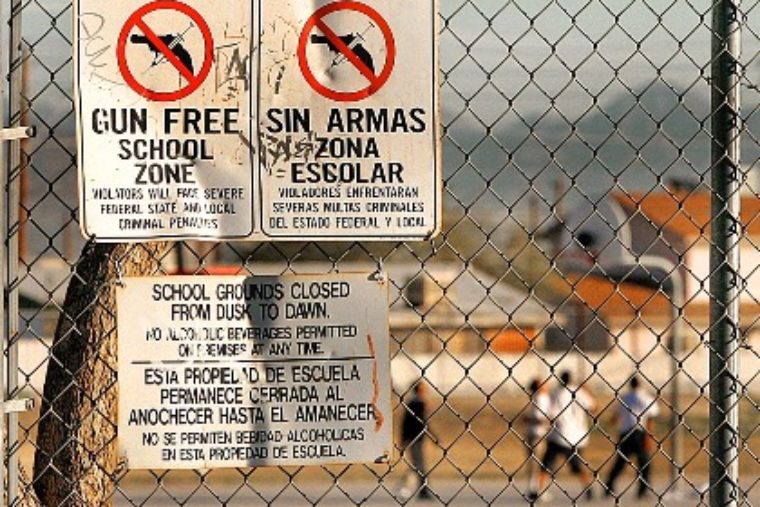The debate over the efficacy of gun-free zones has only grown more heated in the wake of several recent mass casualty incidents. Here are five things to know about the controversial laws.
1. WHAT IS A GUN-FREE ZONE?
Gun-free zones are areas that prohibit the possession of firearms, with some exemptions that depend on state or federal laws.
At the federal level, schools are affected by this prohibition via two laws. The Gun-Free School Zones Act prohibits firearms at public and private schools or within 1,000 feet from school grounds. In addition, the Gun-Free Schools Act requires states to enforce a zero-tolerance gun policy toward students in their schools and at school events in order to qualify for federal funding.
Military bases have barred personnel and civilians from carrying on site since 1992, although the Department of Defense recently made moves to loosen this policy.
State laws vary, but some locations where firearms are commonly prohibited include bars, airports and hospitals.
by Cole Zercoe



